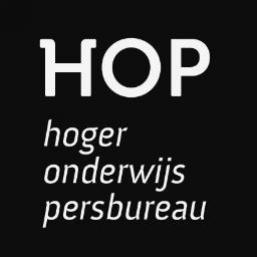
PVV and NSC win elections: What will happen to higher education and science?
With 37 seats, the PVV becomes the largest party in the House of Representatives. Newcomer NSC won 20 seats. Both parties want to stop the internationalization of higher education.
Almost all votes have been counted. Geert Wilders’ party stands head and shoulders above the rest, and that could have major consequences for higher education and scientific research.
One thing is certain: Migration is a major theme in the upcoming negotiations for a new cabinet. A large majority of the House of Representatives soon wants to limit foreign students in higher education.
The PVV, NSC, and VVD alone have a combined 81 of the 150 seats. They want to make bachelor’s programs Dutch-speaking again, although the VVD advocates for an exception for technical universities.
Foreign students naturally stay away if they don’t speak the language, is the thinking of these parties. With the support of the BoerBurgerBeweging (BBB), the CDA, and one or two other parties, these plans will easily pass through the Senate, even though Pieter Omtzigt does not yet have a coalition there.
Senate
Because of the 75 seats in the Senate, 36 are already for the BBB (16), VVD (10), CDA (6), and PVV (4) parties. For a majority, they then need two more seats, for example, from the SGP or Forum for Democracy. At this point, even the SP and the Party for the Animals (both have three seats in the Senate) could vote with the right-wing bloc. These left-wing parties also want to reinforce Dutch as the language of instruction in higher education.
Only Dutch-speaking undergraduates? Such a turnaround cannot easily be decided. “This must be done step by step,” Omtzigt said in the election campaign, “because some of the current teachers speak English as their mother tongue. So I wouldn’t do that in one year, either. This reform must be implemented over three to four years.”
But that would also be a breakneck pace. Coalition negotiations could take months. Then the new Minister of Education has to put together their own bill, which then has to go through the House and Senate.
It will not take effect until the 2025/2026 academic year, and probably not until a year after that. And then the transition period has yet to begin. Perhaps the new cabinet will have collapsed by then.
Protest
Besides, universities in particular will dig in their heels. With protests, lobbying, and perhaps even lawsuits, they will try to maintain their international position. The same will be true of some very international colleges.
Also unknown is how radically the parties want to change course, now that things are getting serious. Should the entire undergraduate education become Dutch-language again? Omtzigt once wanted to make an exception for “a maximum of 20 percent of the programs.”
And what exceptions will remain possible? Can hospitality management schools and art academies continue in their current form? Will university colleges continue to exist? Can a program like international business still be maintained? There is a good chance that some committee will have to figure this out in consultation with higher education. Even then this will take yet another year.
A big stick
But perhaps the new governing parties want to wield a big stick. Then they could already cut €400 million from bachelor’s programs in anticipation of agreements on internationalization and the language of instruction. This is the amount the CPB has calculated. It is a black scenario for many a university and will also lead to problems in higher education.
Investment in higher education and research will be compromised in any case, even though the NSC called for a “substantial budget for fundamental scientific research and knowledge valorization” in its election program. The VVD wants to cut it by €1.3 billion.
Aside from the cuts, how will the budget for scientific research be distributed now that the country has taken a turn to the right? There is a good chance that economic benefits and social utility will once again play a greater role. Right-wingers have a preference for STEM studies, although they may have some money left over for national history and Dutch Studies. Either way, there will probably be less leeway for free research.
Unless...
Unless the negotiations for a new coalition go nowhere and the Netherlands has to return to the polls. Then everything is possible again. Should a cabinet emerge, with or without Geert Wilders as prime minister, the question is how stable it will be. Perhaps it will have too little time for great deeds in higher education.

